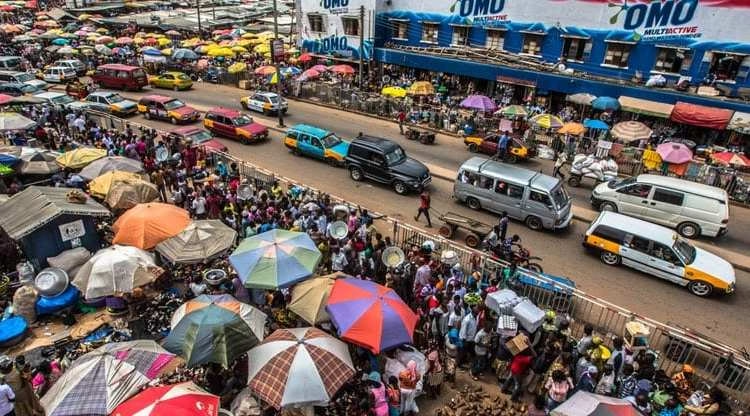Kumasi, the capital of the Ashanti Region, is experiencing rapid population growth and urbanization, leading to congestion, rising crime rates, and frequent road accidents—especially in the Central Business District (CBD).
Despite various government interventions, the city’s once-vibrant aesthetic appeal is diminishing, as traders, pedestrians, and vehicles battle for space in overcrowded markets.
Market Congestion and Its Challenges
Market congestion in Kumasi has become a longstanding issue, with thousands of traders occupying pavements and unauthorized spaces. This has resulted in:
✔️ Poor sanitation due to waste buildup
✔️ Increased crime, including pickpocketing and theft
✔️ Frequent pedestrian knockdowns from commercial vehicles
Unfortunately, Ghana’s urban centers, including Accra’s Makola Market and Kejetia Market in Kumasi, have long struggled with similar challenges due to poor urban planning and inadequate infrastructure.
Stakeholders Demand Stricter Regulations
Although the government cannot entirely control rural-urban migration, urban planners and policymakers are pushing for:
📌 Stricter law enforcement to remove unauthorized traders
📌 Completion of stalled market projects to provide more trading spaces
📌 Expansion of existing markets to accommodate the growing population
Many stakeholders believe that without proper planning and enforcement, Kumasi will continue to face environmental degradation, worsening crime, and uncontrolled traffic congestion.
Expert Calls for Sustainable Urban Planning
Dr. Stephen Appiah Takyi, an Urban and Physical Planner and Senior Lecturer at KNUST, believes that simply evicting traders isn’t a long-term solution. Instead, he proposes:
✔️ A satellite market system to decentralize trading activities
✔️ Expert-led urban planning rather than politically driven decisions
✔️ Increased investment in municipal and district assemblies to enhance city management
“The political system is powerful, and they lead decision-making. But any government that takes expert opinions seriously will see real change in Ghana,” he stated.
For more insights on urban planning and governance, check out Ghana Urbanization Think Tank.
What’s Next for Kumasi?
With market congestion, crime, and road accidents on the rise, Kumasi’s future depends on smart urban planning and enforcement of city regulations.
Experts urge the government to:
🔹 Implement a strict fining system for urban violations
🔹 Develop long-term urban expansion plans
🔹 Improve infrastructure in trading hubs
Without immediate action, Kumasi’s urban crisis will continue to escalate, affecting both businesses and residents alike.
For further updates on urban development in Ghana, visit Ghana’s Ministry of Local Government.



